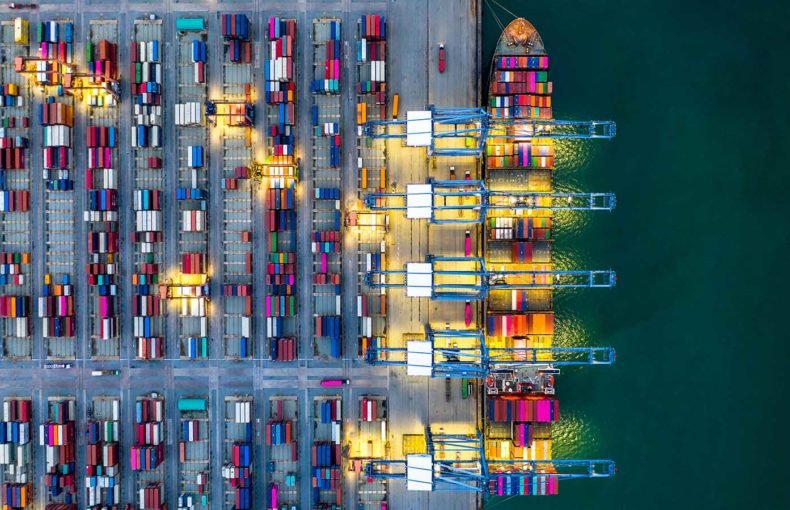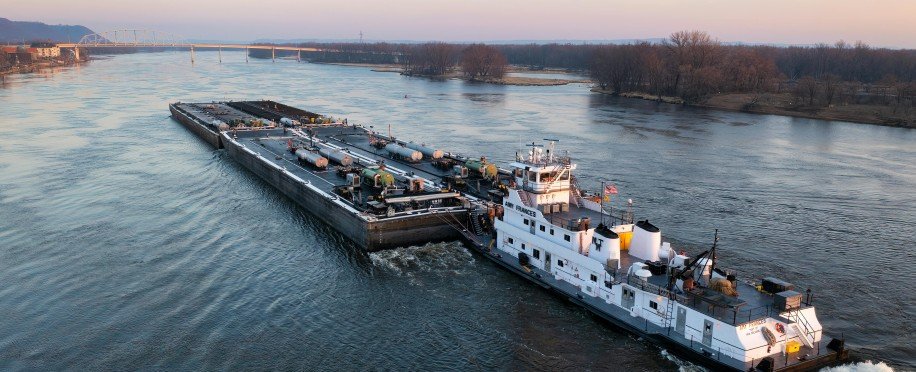The marine industry is the backbone of Dubai’s economy. With its strategic location, Dubai has become a leading global hub for trade, shipping, and logistics. Every year, thousands of vessels arrive at and depart from Dubai ports, carrying goods, tourists, and vital resources. In this busy environment, safety and efficient management are more important than ever. That is why all vessels should operate AIS in Dubai ports.
The Automatic Identification System (AIS) is a technology that has transformed maritime navigation. It is not just a tool for tracking ships; it is an essential safety feature that protects lives, prevents accidents, and strengthens port security. In this article, we will explore why it is critical that all vessels, regardless of their size or type, operate AIS while navigating in Dubai ports.
What is AIS and how does it work?
AIS is an automatic tracking system used on ships and by vessel traffic services. It provides real-time information about a vessel’s identity, position, speed, and course. Ships equipped with AIS continuously transmit this data, which can be received by other nearby ships and shore-based stations.

In simple terms, AIS works like a “digital eye” on the sea. It helps captains, port operators, and maritime authorities to see where every vessel is, what it is doing, and where it is going. This visibility is crucial in busy ports like Dubai.
Why all vessels should operate AIS in Dubai ports
Enhancing safety and preventing collisions
The waters around Dubai are crowded with cargo ships, oil tankers, passenger vessels, fishing boats, and recreational yachts. Without proper tracking, the risk of collisions and accidents increases significantly.
When all vessels operate AIS in Dubai ports, it allows everyone to be aware of each other’s positions and movements. This prevents dangerous close encounters, reduces the risk of groundings, and helps avoid costly and potentially fatal accidents.
Improving port efficiency
Dubai ports are known for their efficiency and high standards. However, handling a large number of vessels every day requires precise coordination. AIS helps port authorities manage traffic more effectively by reducing waiting times at anchorage, optimizing berth assignments, and facilitating smooth entry and exit of vessels.
When all vessels operate AIS in Dubai ports, port operations become smoother, delays decrease, and overall productivity increases.
Strengthening security and surveillance
Security is a major concern in today’s world, especially in important trade hubs like Dubai. AIS acts as an essential security tool. By monitoring every vessel, authorities can identify unauthorized or suspicious movements, prevent illegal activities such as smuggling, and track vessels that may pose environmental or security threats.
If all vessels operate AIS in Dubai ports, it becomes much easier to maintain a safe and secure maritime environment.
Supporting search and rescue operations

Emergencies at sea can happen at any time. Whether it is a mechanical failure, fire, or a man overboard situation, quick response can save lives. AIS provides accurate location data that enables rescue teams to act fast and efficiently.
By ensuring all vessels operate AIS in Dubai ports, the chances of successful rescue missions increase dramatically. It is a vital tool for protecting crew members and passengers.
Environmental protection
Dubai is committed to protecting its marine environment. Accidental oil spills, illegal discharges, and groundings can cause severe environmental damage. AIS data helps monitor vessel movements and can be used to investigate incidents and hold polluters accountable.
When all vessels operate AIS in Dubai ports, it supports the city’s goal of maintaining a clean and sustainable marine ecosystem.
Legal framework and international standards
Globally, many regulations already require ships over a certain size to carry and operate AIS. The International Maritime Organization (IMO) mandates AIS for all ships of 300 gross tonnage and above engaged on international voyages, cargo ships of 500 gross tonnage and above not engaged on international voyages, and all passenger ships regardless of size.
Dubai Maritime City Authority has also emphasized the importance of AIS for vessels operating within its jurisdiction. However, smaller vessels and private yachts are often exempted, which creates blind spots and potential hazards.
If all vessels, regardless of size, operate AIS in Dubai ports, it would bring the city closer to full compliance with best practices and enhance overall safety standards.
Benefits for different stakeholders
Shipowners and operators
Reduced risk of accidents and associated financial losses.
Easier compliance with port regulations and faster port clearance.
Better situational awareness for crew members.
Port authorities
Improved traffic management and operational efficiency.
Enhanced ability to respond to emergencies.
Better enforcement of maritime security and environmental laws.
Maritime insurance providers
Lower risk profiles for insured vessels.
More accurate accident data for claims analysis.
General public and environment
Safer travel for passengers and crew.
Protection of marine life and coastal areas from environmental hazards.
Challenges in implementing AIS for all vessels

While the benefits are clear, there are challenges to making AIS mandatory for all vessels. These include the cost of installation, as small boat owners may find the cost of AIS equipment to be a financial burden. However, as technology becomes more affordable, this challenge is diminishing.
Another challenge is training and awareness. Operators of smaller recreational vessels might not be familiar with AIS technology. Training and education campaigns can help overcome this barrier.
There are also privacy concerns, as some owners of private yachts and fishing boats worry about being constantly tracked. Nevertheless, the safety benefits far outweigh these concerns.
By addressing these challenges through subsidies, training programs, and awareness campaigns, Dubai can ensure that all vessels operate AIS in Dubai ports.
Global examples of successful AIS implementation
Several major ports worldwide have successfully mandated AIS for all vessels. For example, Singapore, one of the busiest ports in the world, requires all commercial vessels and many private boats to operate AIS. This has greatly improved safety and efficiency.
Rotterdam, Europe’s largest port, uses AIS extensively to monitor and manage traffic, contributing to its reputation for high safety standards. Hong Kong, known for its crowded waters, uses AIS data to improve navigational safety and coordinate vessel movements seamlessly.
Dubai can learn from these examples and further strengthen its position as a global maritime leader.
Dubai’s vision for the future
Dubai has always been at the forefront of innovation and excellence. As part of its vision to become a smart and sustainable city, embracing full AIS implementation for all vessels fits perfectly. By doing so, Dubai will increase port capacity and efficiency, enhance maritime safety and security, support environmental sustainability, and maintain its status as a world-class maritime hub.
Conclusion
There are many strong reasons why all vessels should operate AIS in Dubai ports. From preventing collisions to protecting the environment and supporting efficient port operations, AIS is a game-changer for Dubai’s maritime future.
By taking decisive steps to require AIS on all vessels, Dubai can set a new global standard in port safety and operational excellence.
For shipowners, operators, and all stakeholders in the maritime community, this is not just a regulatory requirement but an investment in safety, security, and long-term success.
Let us work together to ensure that every vessel, big or small, contributes to a safer, cleaner, and more efficient Dubai port ecosystem.
Follow us on instagram: UAE STORIES
Read More: Suvarna Sourabha Event Dubai: An Unforgettable Kannada Celebration













